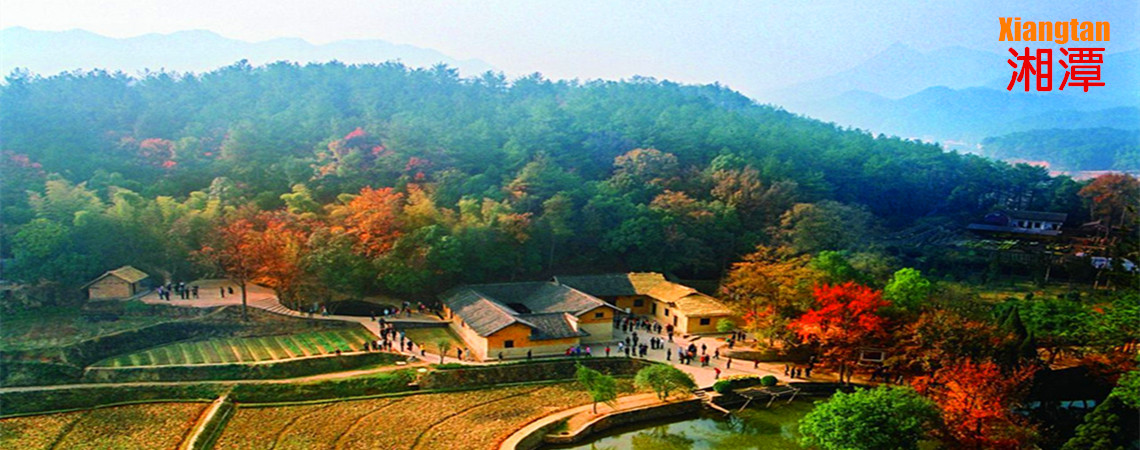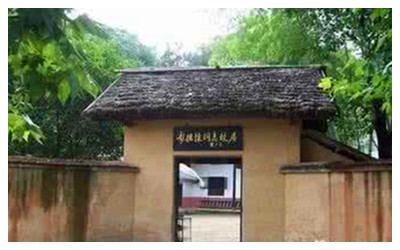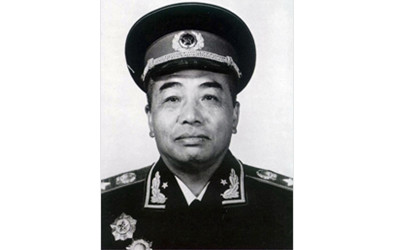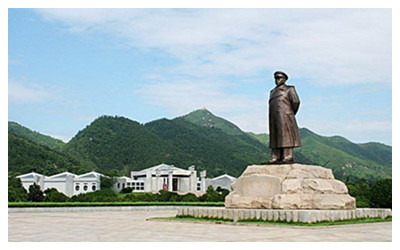
Peng Dehuai's Former Residence
 Lying at the foot of Wushi Peak, Xiangtan, Peng Dehuai Memorial Park is mainly composed of a bronze statue, a memorial hall, the former residence of Peng Dehuai, and his tomb, fully displaying the life and work of Peng Dehuai and praising his heroic deeds.
Lying at the foot of Wushi Peak, Xiangtan, Peng Dehuai Memorial Park is mainly composed of a bronze statue, a memorial hall, the former residence of Peng Dehuai, and his tomb, fully displaying the life and work of Peng Dehuai and praising his heroic deeds.
About Peng Dehuai
Peng Dehuai (October 24 1898-November 29 1974) was a prominent military leader of the Communist Party of China, and China's Defense Minister from 1954 to 1959. Peng was an important commander during the Second Sino-Japanese War and the Chinese civil war and was also the commander-in-chief of the People's Volunteer Army in the Korean War.
 Peng Dehuai was born in 1898 in Xiangtan County in Hunan Province. He was a rough-hewn man from very humble beginnings. Peng was exiled from his family home at the age of nine. Before joining the army at sixteen, he had worked in coal mines at the age of thirteen and at dams on Lake Dongting at the age of fifteen. He attended the Hunan Military Academy and served as a Nationalist Officer.
Peng Dehuai was born in 1898 in Xiangtan County in Hunan Province. He was a rough-hewn man from very humble beginnings. Peng was exiled from his family home at the age of nine. Before joining the army at sixteen, he had worked in coal mines at the age of thirteen and at dams on Lake Dongting at the age of fifteen. He attended the Hunan Military Academy and served as a Nationalist Officer.
By the age of twenty-eight, he was a brigade-commander in the Kuomintang Army. Peng was forced to flee Chiang Kai-shek's purge in 1927 and joined the Communist Party of China, participating in the Long March. He commanded the Third Army during the Long March. His contributions to the CPC were highly praised and earned him the nickname "Great General Peng".
 Peng Dehuai and Lin Biao were generally reckoned to be the Red Army's best battlefield commanders. They do not seem to have been rivals during the Long March. Both of them had supported Mao's rise to de facto leadership at Zunyi in January 1934. All his life Peng spoke frankly, bluntly, and he wrote in plain, vigorous Chinese, often at great length so that no one might doubt his meaning.
Peng Dehuai and Lin Biao were generally reckoned to be the Red Army's best battlefield commanders. They do not seem to have been rivals during the Long March. Both of them had supported Mao's rise to de facto leadership at Zunyi in January 1934. All his life Peng spoke frankly, bluntly, and he wrote in plain, vigorous Chinese, often at great length so that no one might doubt his meaning.
During World War II, Peng served as deputy commander-in-chief of the Communist forces and coordinated the Hundred Regiments Campaign. Peng went on to serve with distinction behind Japanese lines in North China. After the Japanese surrender, Peng and He Long were cutting Beijing's Nationalist Kuomintang connections with the rest of China and effectively surrounded Beijing. Thereafter, during the late stages of the Chinese Civil War he led the Chinese 1st Field Army in its conquest of Shaanxi, Gansu, Ningxia, and Qinghai Provinces.
He was the supreme commander of the People's Volunteer Army during the Korean War (1950-1953), also serving as the Defense Minister and as a member of the Politburo of the Communist Party of China. He was made a marshal of the People's Liberation Army in 1955. However, his treatment of returning Chinese POW's from the Korean War was heavily criticized. He was to have many military clashes with Marshal Lin Biao and won most of them.
The Third Plenary Session of the Eleventh Central Committee of the Communist Party of China, held in 1978, reexamined Marshal Peng's case and reversed the judgment that had been imposed on him. It exonerated him of all charges and reaffirmed his contribution to the Chinese Revolution.
Travel Tips
Transport : Buses go from Xiangtan West Bus Station to the memorial park everyday
Tel: (86)732-57838100
Admission : CNY 25
Opening hours: 08:00 -17:30



 Ask Questions ?
Ask Questions ?